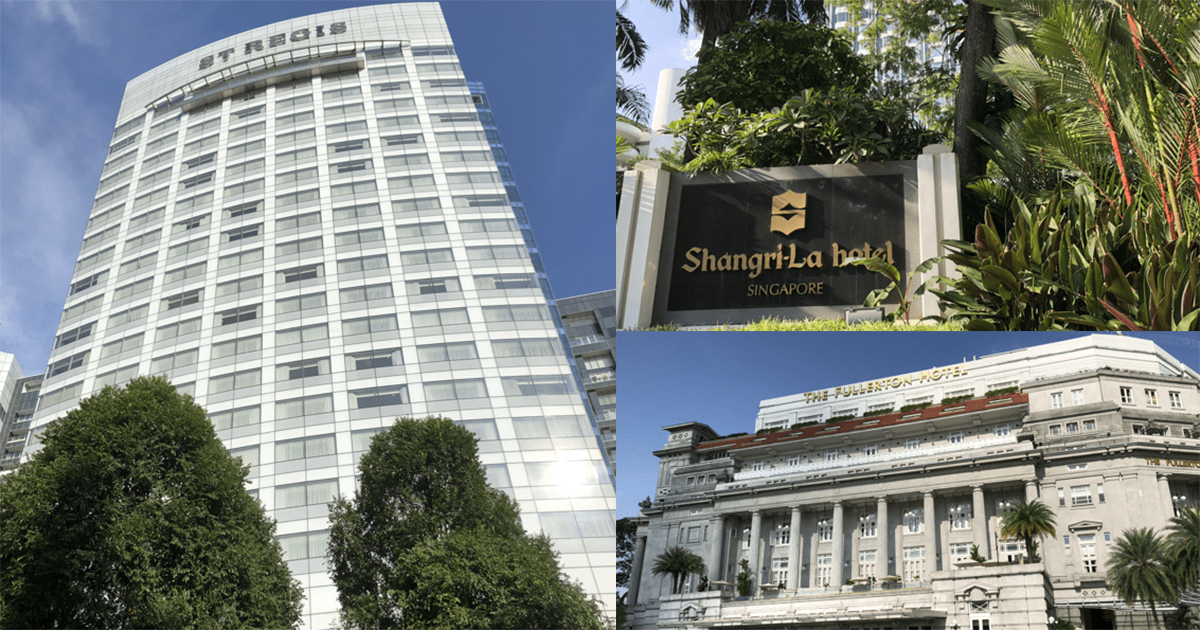The historic Trump-Kim summit that is going to be held on Jun 12 is the talk of the town these days.
And over the last few days, there was no shortage of new developments. The Tanglin area and Sentosa were gazetted as special event areas on June 4 and June 5 respectively.
On June 6, the Capella Hotel was announced to be the official location of the summit.
Earlier, we tried to explain what an "enhanced security special event area" even is.
In a nutshell, security is expected to be heightened and many are worried about the potential disruption caused by the summit.
Many are also curious about where Trump and Kim will be staying.
Here at Mothership, we figured the best way to find out what is really going on is to go on the ground and check these places out.
We sent two of our interns eager volunteers to snoop around the hotels and hopefully not get arrested.
This was what we discovered.
Capella Hotel
Capella Hotel is owned by Pontiac Land Pte Ltd, a company controlled by the Singaporean Kwee family since 2017. Prior to that, the hotel was owned by the Atlanta-based Capella Hotel Group founded in 2002 by Horst Schulze. Pontiac is now the parent company of Capella, where Schulze remains as the chairman and CEO.
Unlike some of the other hotels on this list, the Capella Hotel does not have a history of hosting foreign dignitaries.
Arriving at the entrance, we expected stringent security checks before we were let in. Something along the lines of metal detectors, bag searches, or ID checks. Instead we were greeted by an unwelcome surprise.
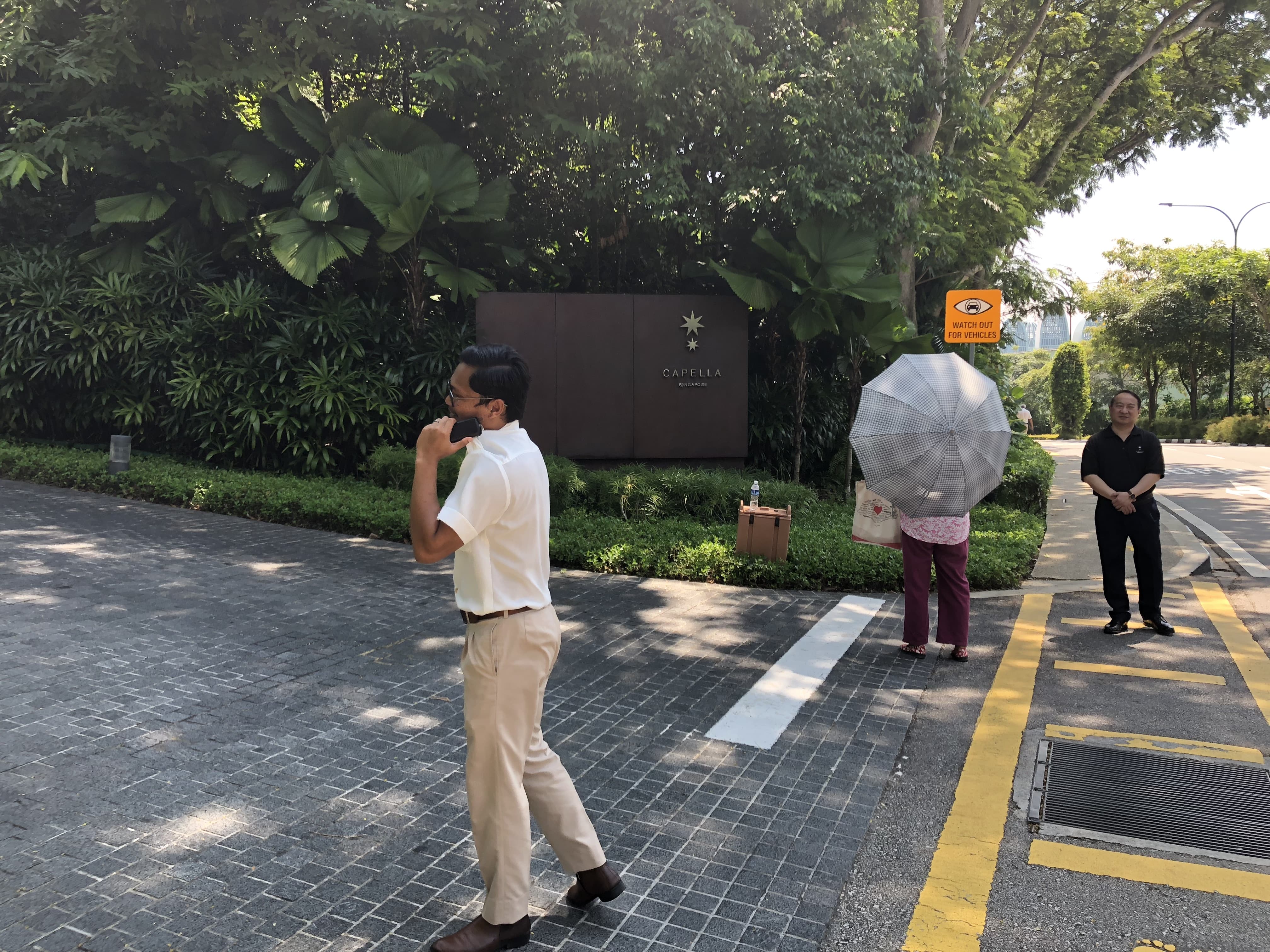 Entrance of the Capella Hotel. Image by Jason Fan.
Entrance of the Capella Hotel. Image by Jason Fan.
Members of the public were strictly prohibited, and only registered guests were allowed inside. The security officers were polite but firm, and our attempts to enter were quickly denied. Still, our nosy interns tried to pry them for more information.
"Eh, so why is it closed to the public?"
"The hotel is closed for a private event today."
"Private event today? Not for the summit next week?"
"No, the hotel is closed for a private event."
Fair enough.
After a little more back and forth, we did find out that the increased security has already been implemented a few days ago, and that there were many others who have tried to enter since then. With only one real entrance and a security team that refuses to budge, we are guessing that other potential busy-bodies need not try to gain access to the hotel until the summit ends.
Although access to the Capella Hotel was restricted, there did not seem to be extra security visible in other prominent hotels in the vicinity, such as the Sofitel Sentosa and the Amara Sanctuary.
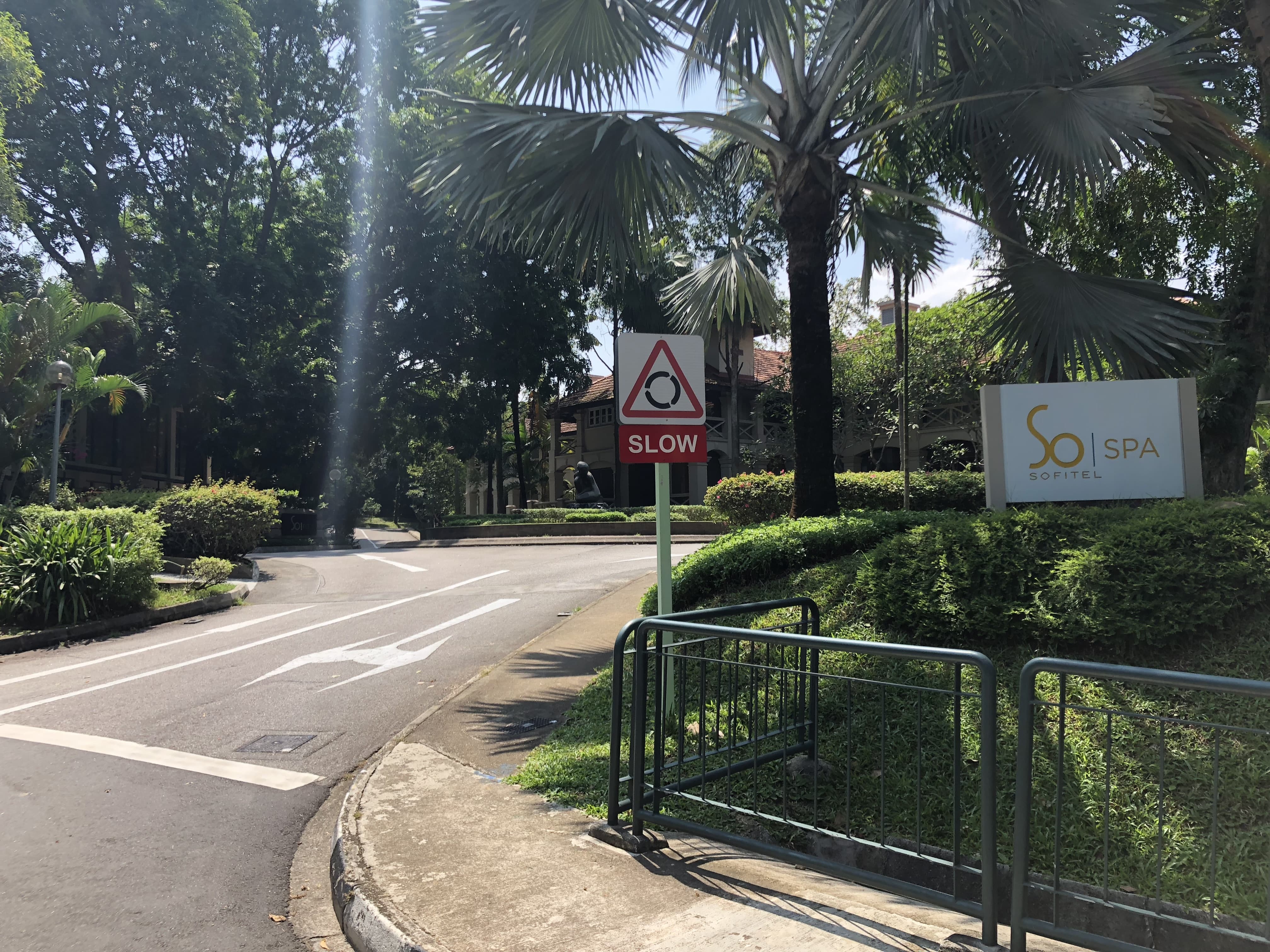 No security in sight at the entrance of the Sofitel Spa. Image by Jason Fan.
No security in sight at the entrance of the Sofitel Spa. Image by Jason Fan.
It was also business as usual in the rest of Sentosa, with no security in sight.
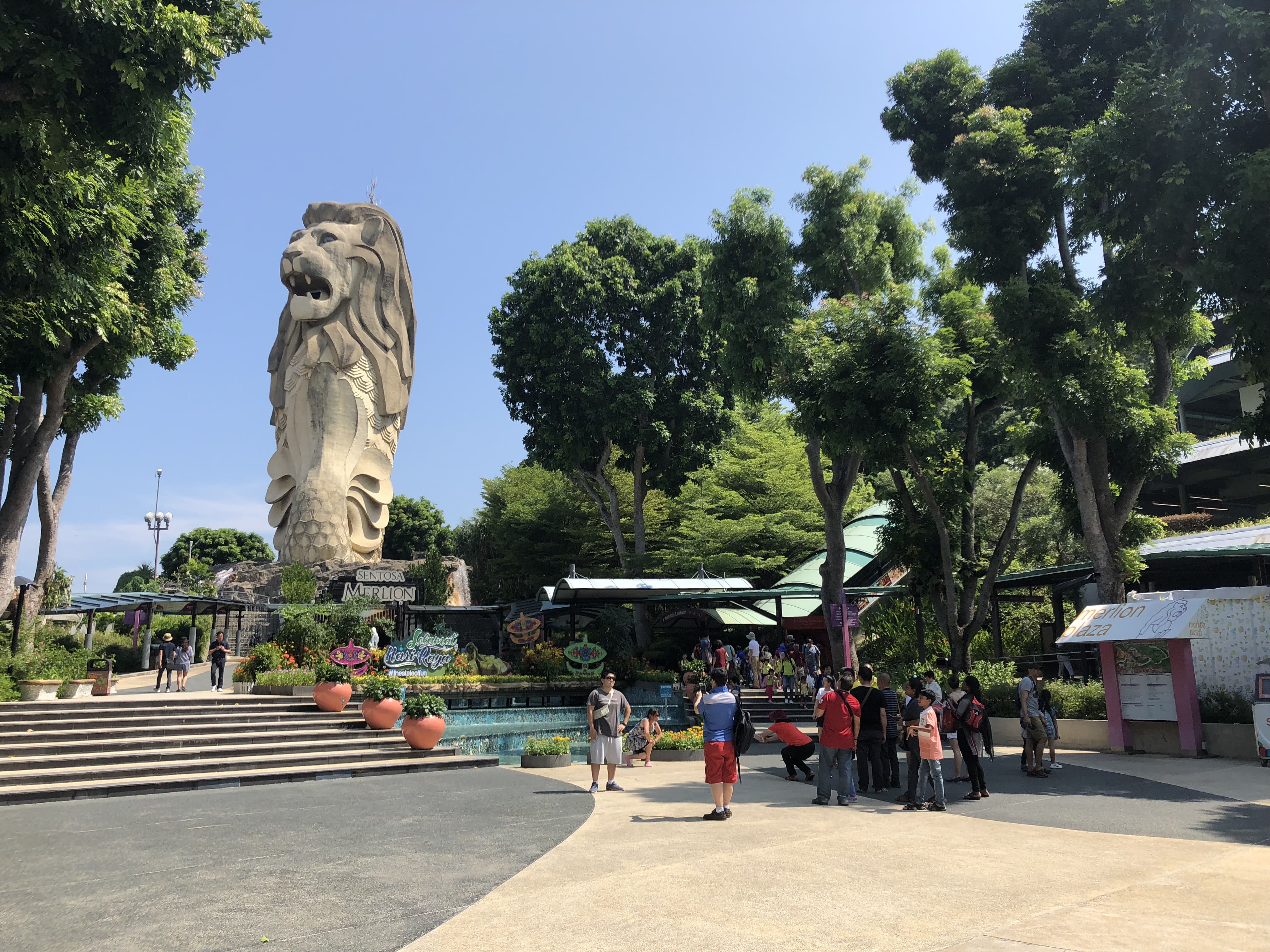 Business as usual near the Merlion. Image by Jason Fan.
Business as usual near the Merlion. Image by Jason Fan.
If there really is extra security in place, they are doing a pretty good job of hiding it, since they are practically invisible.
Fullerton Hotel
The Fullerton is owned by Sino Group, a Hong Kong-based property developer. The Sino Group is controlled by the Ng family, which also owns Sino's sister company, Singapore's Far East Organisation.
The building was completed in 1928 and hosted the General Post Office and the Inland Revenue Agency before becoming a hotel. The Fullerton is so proud of its history that there are exhibitions at the two ends of its luxurious lobby.
Lee Kuan Yew himself also led many lunchtime political rallies in front of this very building.
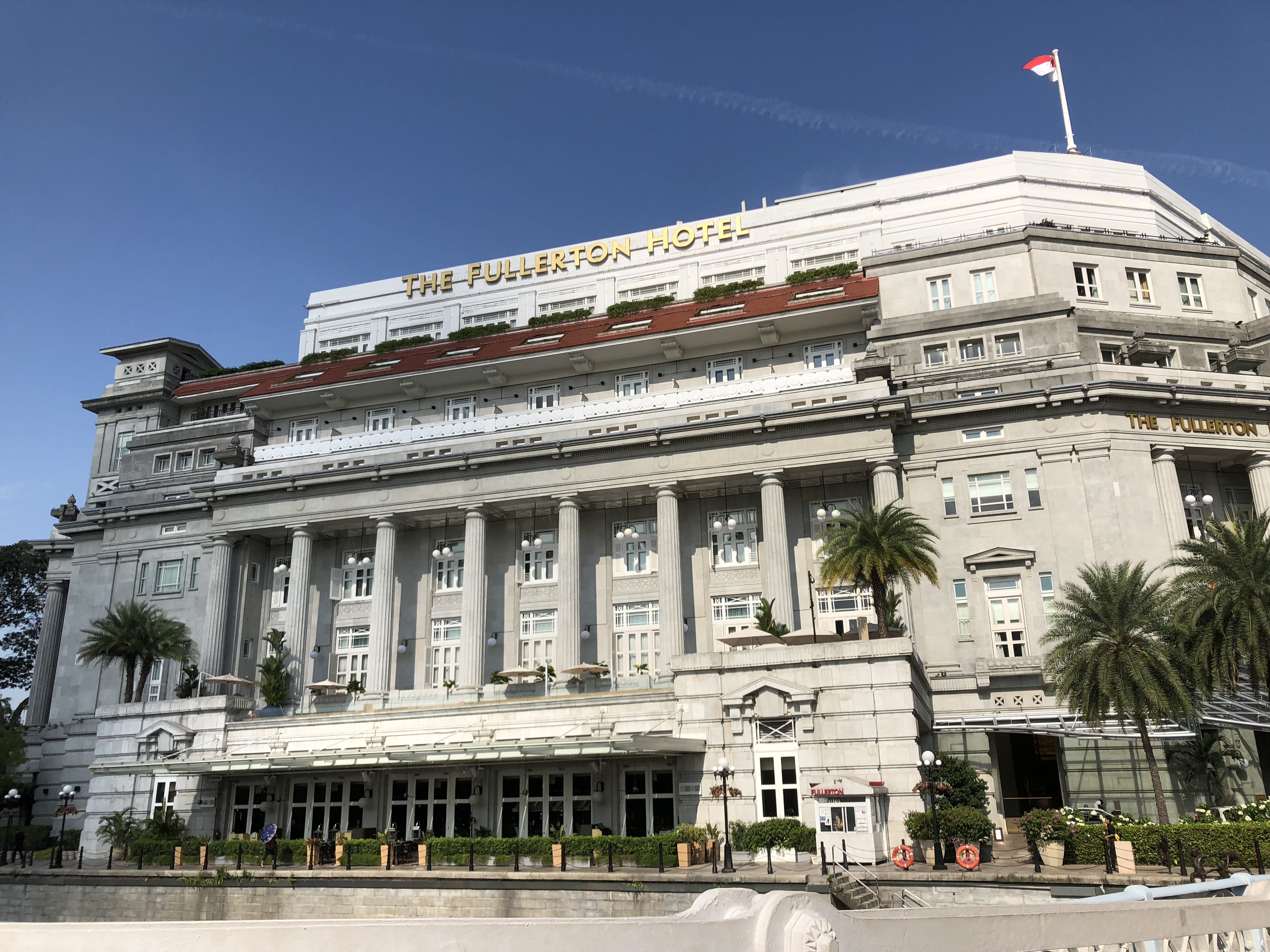 The Fullerton Hotel. Image by Jason Fan.
The Fullerton Hotel. Image by Jason Fan.
Although it is not located in any of the two special event areas, the Fullerton Hotel still stands out due to Kim's request to stay there.
The hotel exudes a classic vibe, and rightly so. It is a hotel with a rich history, and the building itself was gazetted as a national monument in 2015. It was sophisticated, yet not overly luxurious.
Walking up to the hotel entrance, we did not encounter any resistance to enter the hotel. While we were inside, there was also no sign of additional security, and everything appeared normal.
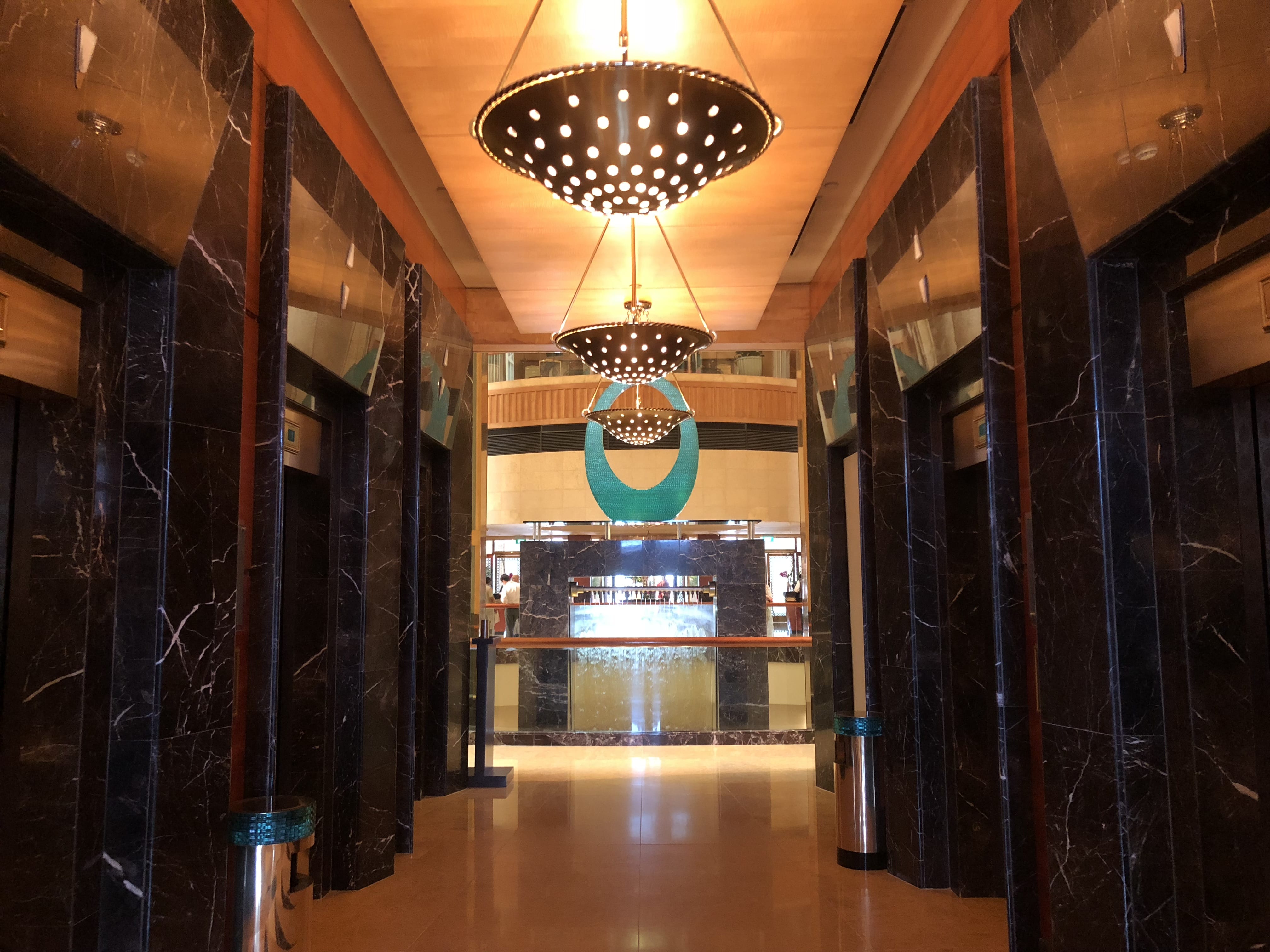 Lift lobby at the Fullerton Hotel. Image by Jason Fan.
Lift lobby at the Fullerton Hotel. Image by Jason Fan.
Although a fine five-star hotel in its own right, one may wonder why Kim specifically requested to stay in this hotel, as there are other hotels in Singapore that provide similar levels of luxury.
After an extensive look around, we came to a conclusion: perhaps Kim really wants a signature Fullerton Postmaster bear?
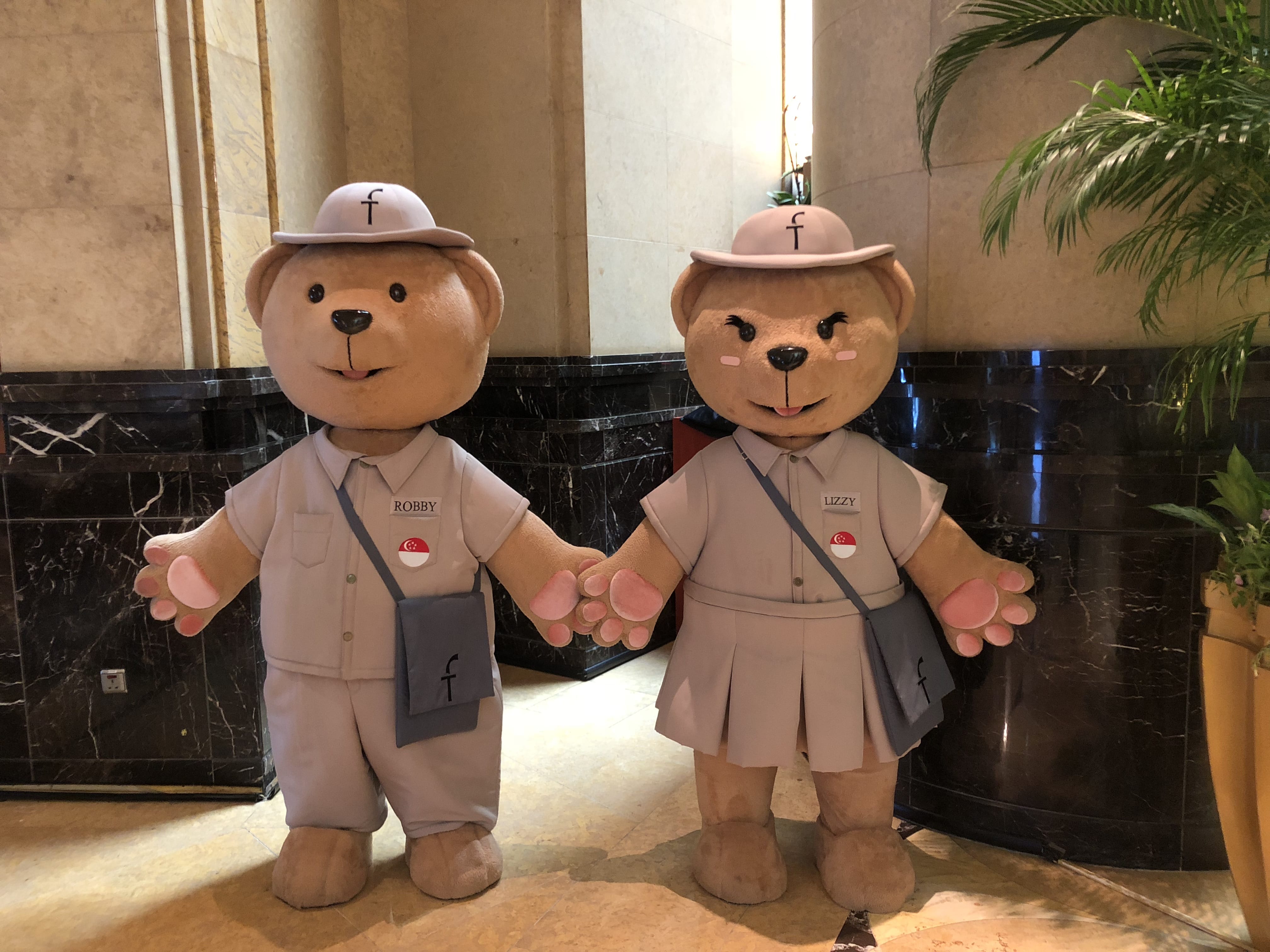 The real reason why Kim wants to stay at the Fullerton Hotel. Image by Jason Fan.
The real reason why Kim wants to stay at the Fullerton Hotel. Image by Jason Fan.
However, given the close proximity of the hotel to the CBD, we cannot imagine how difficult it would be to keep the surrounding area secure, especially since the summit will be held on a weekday.
[related_story]
The St. Regis Singapore
Located in Tanglin, The St Regis Singapore is owned by Hong Leong Group, one of Singapore's largest private sector conglomerates.
While it is one of the city's most luxurious hotels, the hotel's brand might raise a few eyebrows should it be hosting Kim for the summit.
The first St. Regis was established by John Jacob Astor IV in New York City, back in 1904. It remains one of the city's most historic hotels, and the brand itself is managed by Marriott International, another American hospitality giant.
This is important as sources say that Kim insists on not staying in a hotel owned by a Western company, due to image concerns and also paranoia over the safety of communications.
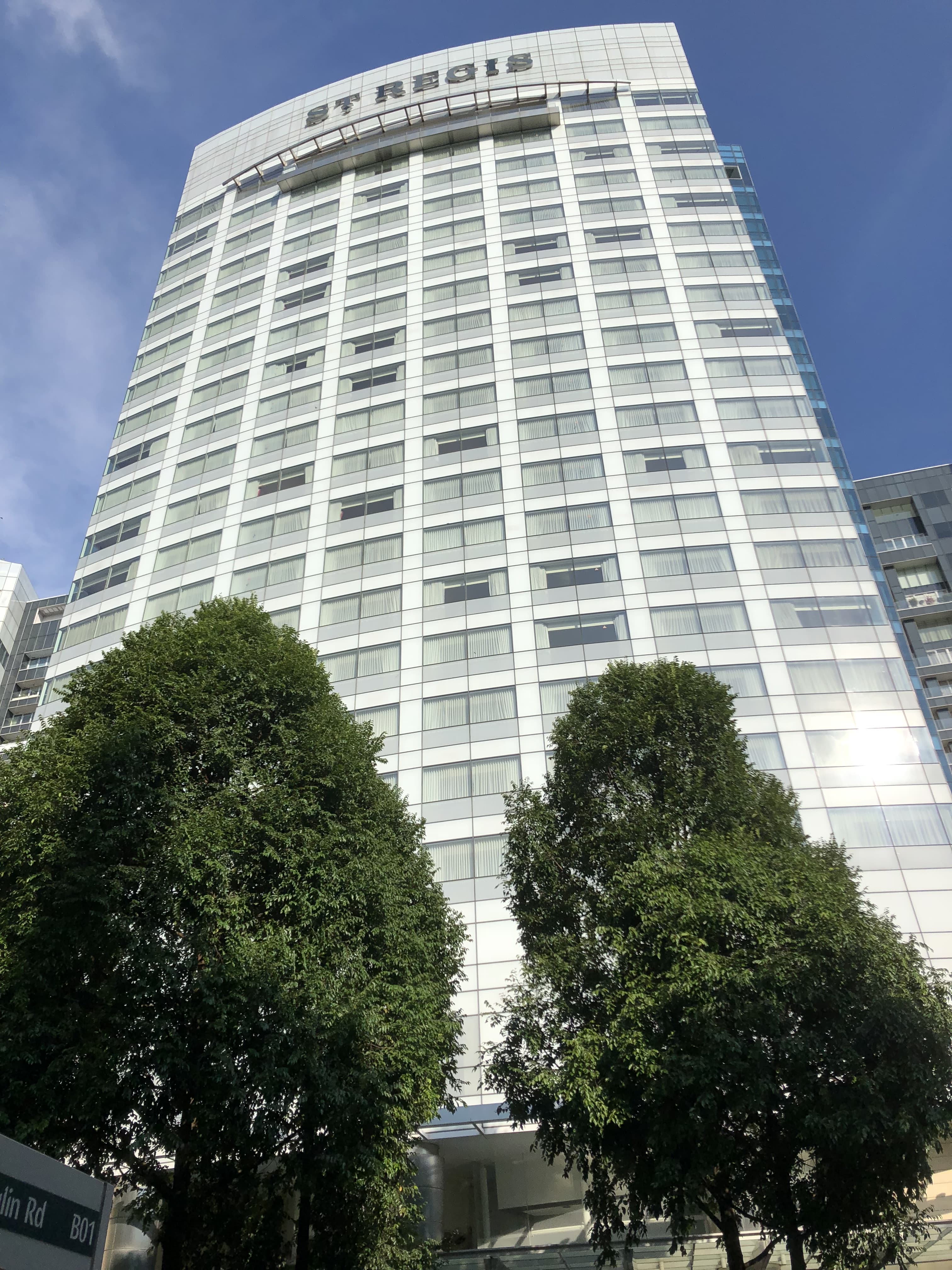 The St. Regis Hotel. Image by Jason Fan.
The St. Regis Hotel. Image by Jason Fan.
While equally luxurious, if not more so, the St. Regis channels a different image compared to the Fullerton Hotel.
Tall and imposing, the exterior of the building blends in with the other high-rise buildings in the Orchard area.
Once you enter though, you step into an opulent lobby that exudes classic luxury which contrasts with its more modern exterior.
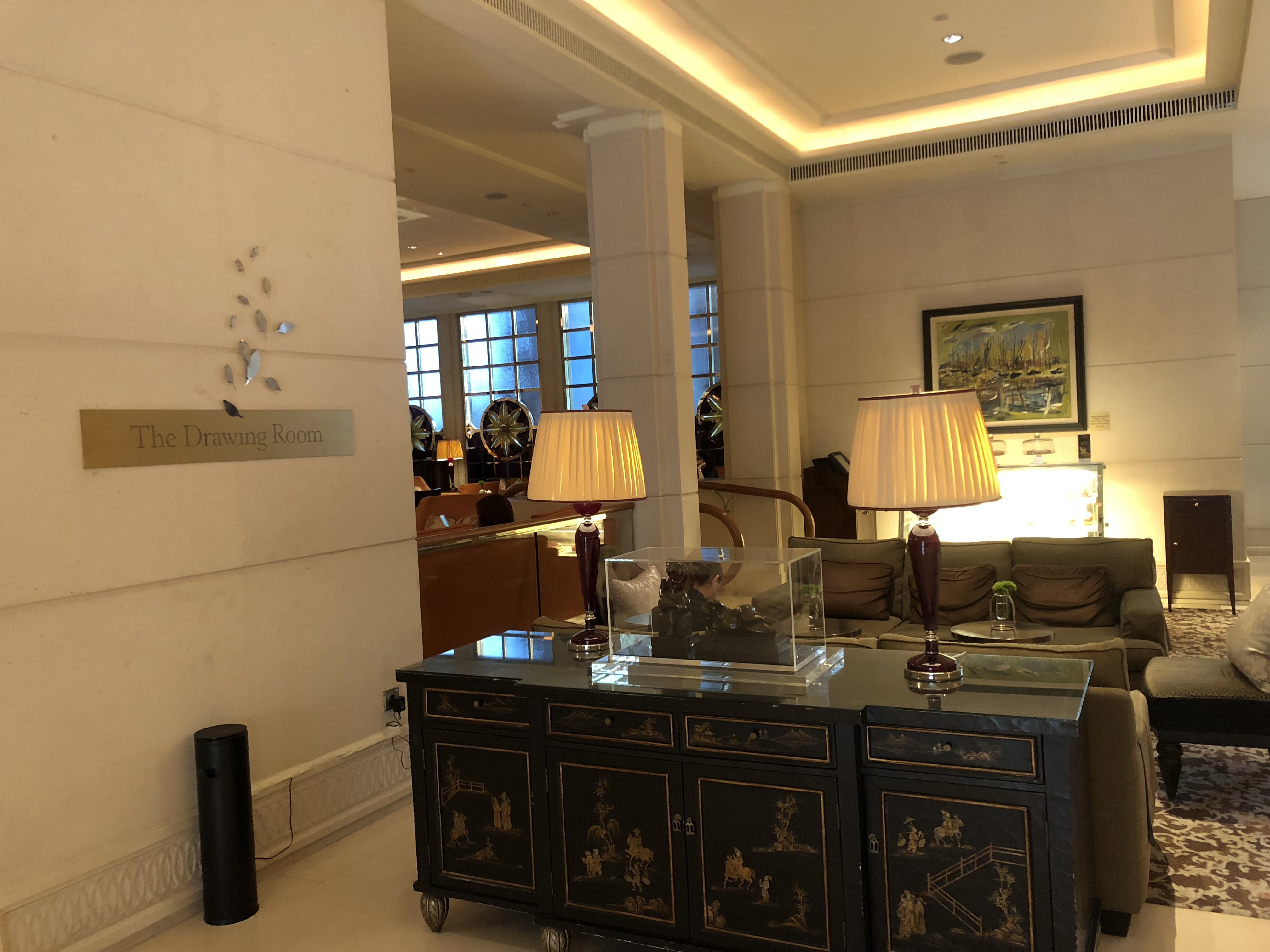 St. Regis lobby. Image by Jason Fan.
St. Regis lobby. Image by Jason Fan.
However, security was noticeably tighter, as there were many security staff within the relatively compact lobby area.
It was clear that security was a lot more no-nonsense here, as a member of security quickly probed us for our picture-taking moments after entering the hotel.
"Sorry sir, are you taking photos of the hotel?"
"Uhm...yes?"
"May I know why?"
"I like to review hotels."
Letting us go, but continuing to keep a close eye on us, the rest of our visit to the St. Regis left us in close scrutiny.
As we were leaving the hotel, we noticed workers installing temporary security cameras in the car park and in the vicinity of the hotel.
A sign, perhaps, of its importance in the upcoming summit.
Shangri-La Hotel, Singapore
Shangri-La Singapore is the first hotel owned and operated by the Shangri-La hotels group. The company was founded by Malaysian businessman Robert Kuok based in Hong Kong and is controlled by the Kuok family.
Shangri-La Singapore has been the venue of choice for various international conferences and events, most notably the Shangri-La Dialogue. The Shangri-La's experience with security arrangements for high-level international events have led some to believe it might be the venue for the summit.
The Shangri-La Hotel is truly an oasis in the middle of the city. Sufficiently secluded despite just being a stone's throw from Orchard Road, it boasts tropical landscaped gardens that surround its resort-like facilities.
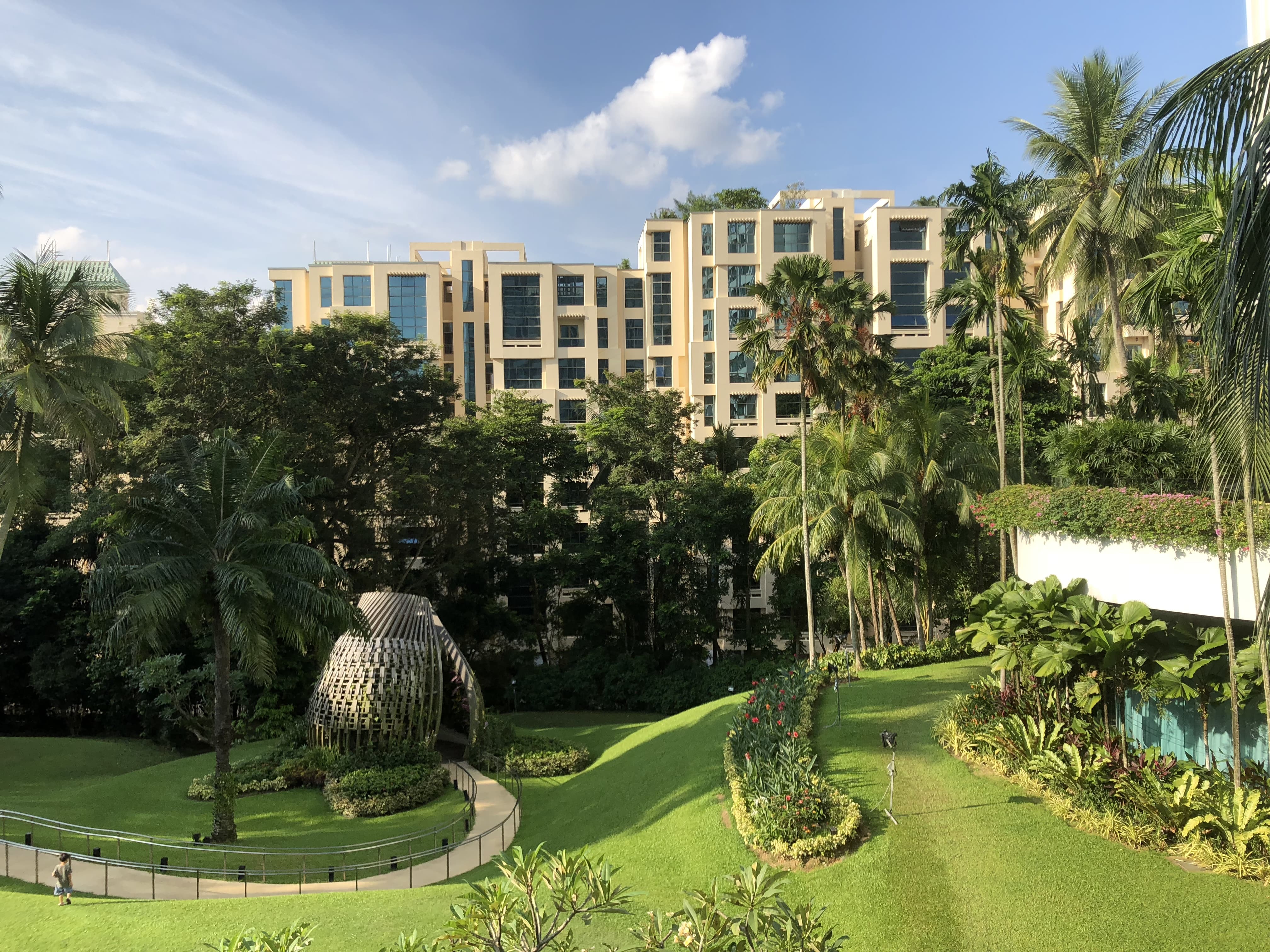 The Shangri-La Hotel. Image by Jason Fan.
The Shangri-La Hotel. Image by Jason Fan.
We were able to enter the hotel with no issues, and despite all the recent media attention drawn to the hotel, it remained buzzing with activity. The lobby was spacious and teeming with guests, and remained relatively open to the public. We were able to observe the pool area and the meeting rooms without much problems. While we did observe several security officers within the hotel grounds, none of them approached us.
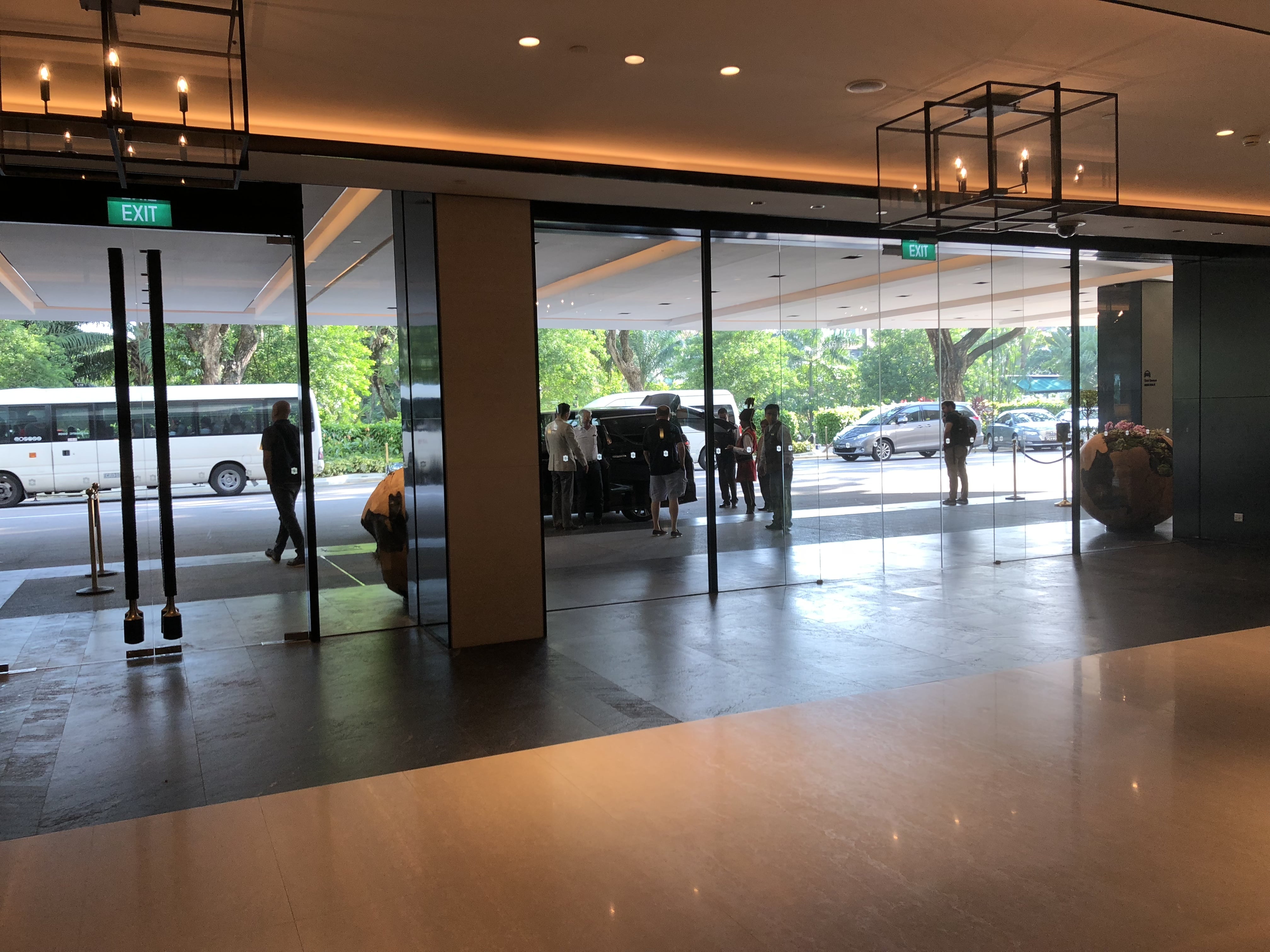 Shangri-La hotel lobby. Image by Jason Fan.
Shangri-La hotel lobby. Image by Jason Fan.
However, we were certain that given the regular diplomatic events that the hotel hosts, the security team has likely just mastered the art of hiding in plain sight.
There was a common point between the Shangri-La Hotel and the St. Regis though: we also spotted cameras installed near the entrance of the hotel.
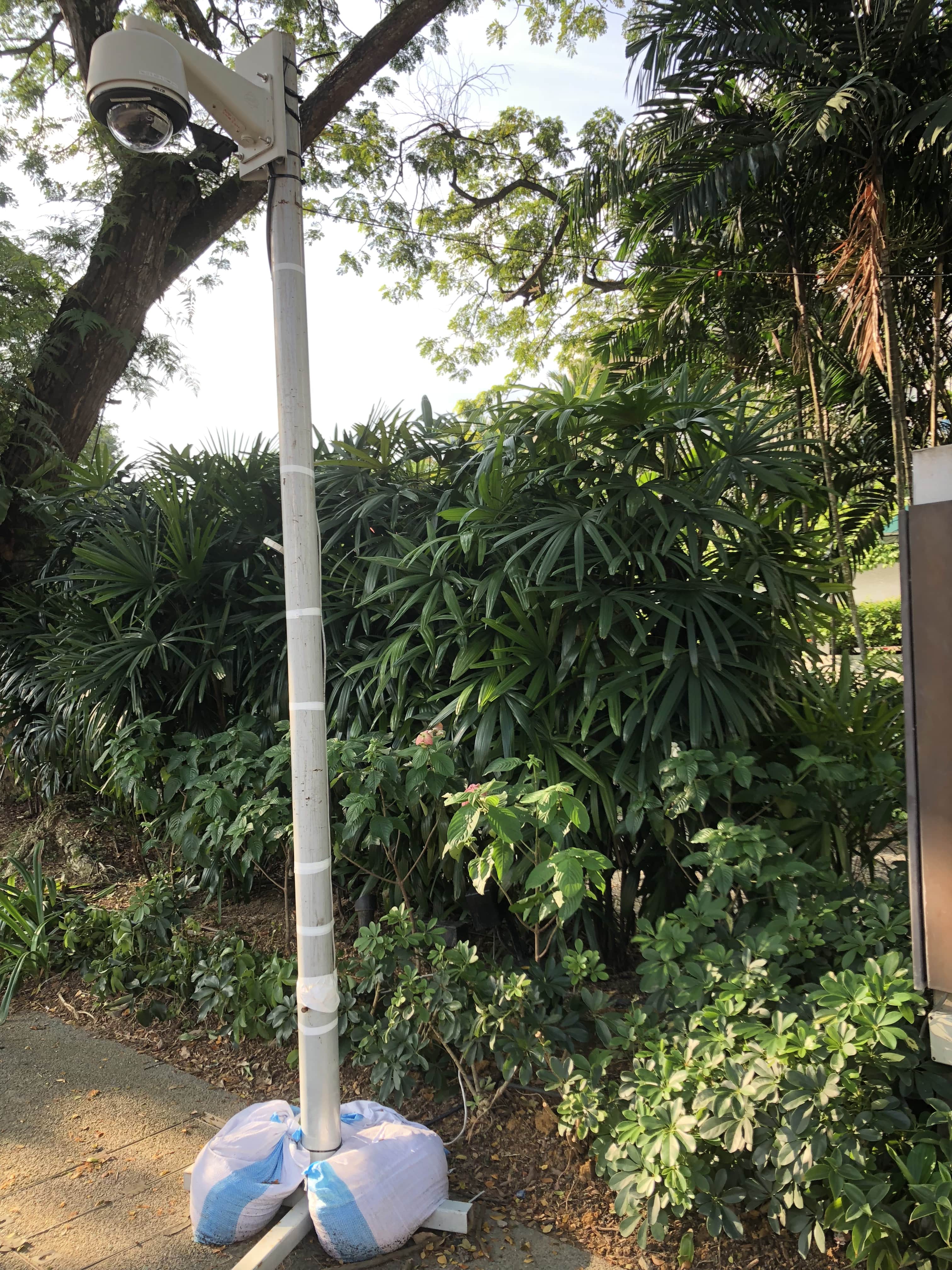 "Enhanced security" secured by sandbags. Image by Jason Fan.
"Enhanced security" secured by sandbags. Image by Jason Fan.
So? Where will Trump/Kim be staying?
It is tough to tell. Apart from the Capella Hotel, which has already started barring members of the public from entering the hotel, the other speculated hotels remain accessible to the public.
With the announcements of the special event areas, the spotlight has been shone on a select few hotels. With so much public attention and such dire need for security, one cannot help but wonder whether it would have been better to keep the potential locations more secret.
This is an event with an unprecedented amount of global attention, and knowing exactly where the leaders will be staying will only add to the risk. Decoys are often employed in such situations, in order to draw attention away from potential troublemakers.
Air Force One is known to fly with a decoy, and decoys are often included in the US presidential motorcade.
Perhaps the locations discussed are all decoys, and they will stay somewhere else altogether.
And although security doesn't seem so tight right now, it must surely be closer to the summit when the police sets up the enhanced security area around these hotels.
Top image by Jason Fan
If you like what you read, follow us on Facebook, Instagram, Twitter and Telegram to get the latest updates.
